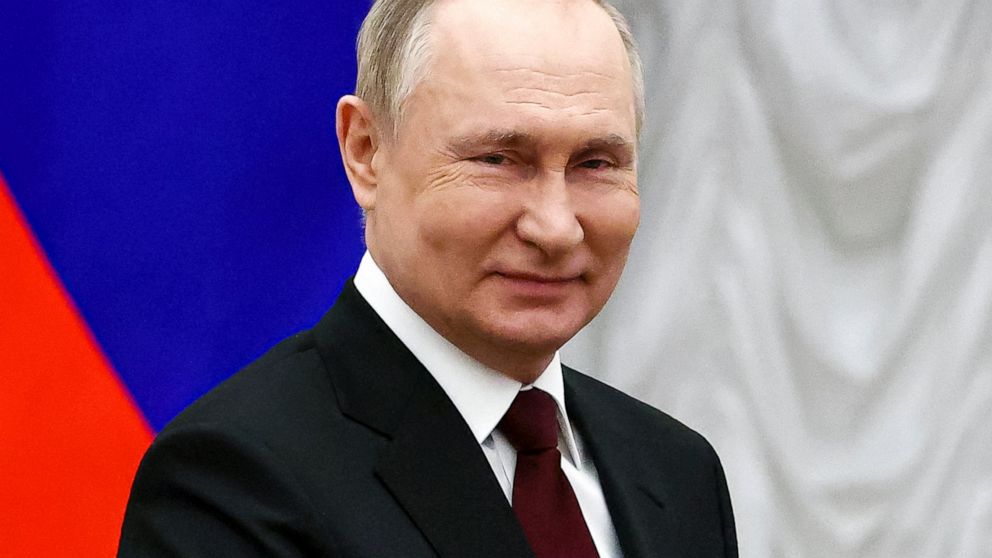Putin heads to China to bolster ties amid Ukraine tensions
Fri 04 Feb 2022, 12:06:11

Moscow: American and European officials may be staying away from the Beijing Winter Olympics because of human rights concerns, but Russian President Vladimir Putin will be on hand even as tensions soar over his buildup of troops along his country’s border with Ukraine.
Putin’s talks with Chinese President Xi Jinping on Friday will mark their first in-person meeting since 2019 and are intended to help strengthen Moscow’s ties with China and coordinate their policies in the face of Western pressure. After, the two will attend the Games’ opening ceremony.
In an article published Thursday by the Chinese news agency Xinhua, Putin wrote that Moscow and Beijing play an “important stabilizing role” in global affairs and help make international affairs “more equitable and inclusive.” The Russian president criticized “attempts by some countries to politicize sports to the benefit of their ambitions,” an apparent reference to a diplomatic boycott of the Olympics by the U.S. and some of its allies.
EU spokeswoman Nabila Massrali reacted to that by stating that “we are, of course, fully committed to contribute to promoting and protecting sports integrity and to strengthening universal respect for human rights.” “Big sports events such as the Olympic Games often have a universal audience,” Massrali said. “They can be instrumental for spreading positive values and promoting freedom and human rights at the global level. However, such platforms should not be used for political propaganda.”
Many Western officials are skipping the Beijing Games in protest of China’s detention of more than 1 million Uyghur Muslims in the northwestern region of Xinjiang. But
leaders of the ex-Soviet Central Asian nations, which have close ties with both Russia and China, all followed Putin’s lead and attending.
leaders of the ex-Soviet Central Asian nations, which have close ties with both Russia and China, all followed Putin’s lead and attending.
In an interview with China Media Group also released Thursday, Putin emphasized that “we oppose the attempts to politicize sport or use it as a tool of coercion, unfair competition and discrimination.”
Putin’s meeting with Xi and attendance at the opening ceremony “announces the further promotion of the China-Russia relationship,” said Li Xin, director of the Institute of European and Asian Studies at Shanghai’s University of Political Science and Law.
China and Russia have increasingly found common cause over what they believe is a U.S. disregard for their territorial and security concerns, Li said. Both their governments have also taken to mocking U.S. over its domestic travails, from last year’s Capitol riot to its struggle to control COVID-19.
“The U.S. and the Western countries, on the one hand, are exerting pressure against Russia over the issue of Ukraine, and on the other hand, are exerting pressure against China over the issue of Taiwan,” Li said, referring to the self-governing island democracy and U.S. ally that China claims as its own territory. “Such acts of extreme pressure by the West will only force China and Russia to further strengthen cooperation.”
Yuri Ushakov, Putin’s foreign affairs adviser, said that Putin’s visit would mark a new stage in the Russia-Chin? partnership that he described as a “key factor contributing to a sustainable global development and helping counter destructive activities by certain countries.”
1 Comments For This Post.
 Altaf Says:
Altaf Says:Very Cunning... Now rushing ahead to find friends in need, otherwise was being hopeful on Allies...
Comment posted on February 04 2022
Most viewed from International
Most viewed from World
AIMIM News
Latest Urdu News
Most Viewed
May 26, 2020
Do you think Canada-India relations will improve under New PM Mark Carney?
Latest Videos View All
Like Us
Home
About Us
Advertise With Us
All Polls
Epaper Archives
Privacy Policy
Contact Us
Download Etemaad App
© 2025 Etemaad Daily News, All Rights Reserved.



.jpg)






.jpg)
.jpg)








.jpg)
.jpg)
.jpg)
.jpg)
.jpg)

















